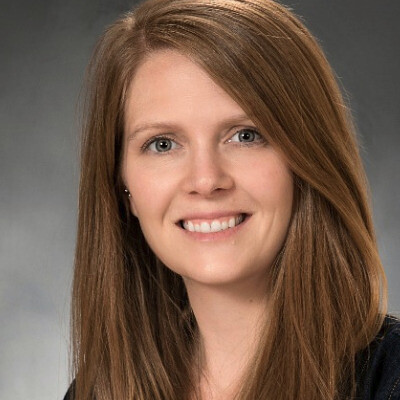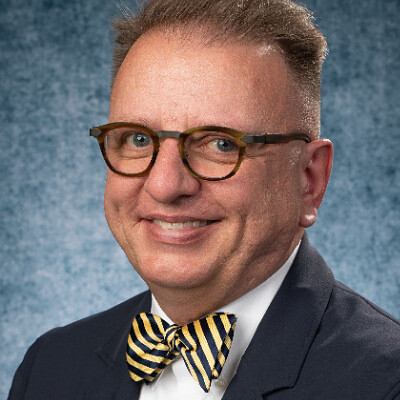This lightning talk describes the creation of an interprofessional faculty fellowship through the collaboration of a College of Health Sciences and a Center for Interprofessional Collaboration at a state university. We cover the rationale, logistics (finances & faculty time allotment/distribution), proposed structure and intended measurable outcomes for success of the program.
Recent publications have called for the systematic approach to advancing IPE research, suggesting findings should have reproducibility, replicability, and generalizability of findings (Gunaldo et al. 2023). More rigorous research is needed to better understand IPE's impact on both individual and team-based outcomes, as well as on patient care. Specifically, a focus on improved research methodologies, linking IPE interventions to measurable changes/outcomes, examining the cost and cost-effectiveness of IPE interventions, and addressing challenges in IPE facilitation is crucial. In collaboration with the College of Health Sciences, the Center for Interprofessional Collaboration created an IPE fellowship program to serve as a catalyst to create a formal IPE research program at this university. This addresses the Summit theme, as addressing logistics, infrastructure, faculty commitment, and measurable outcomes for success is central in the creation of a formal institution-wide IPE research program which should help to address the need for more rigorous IPE research outcomes.
We will describe the creation of our IPE fellowship so other programs could consider similar programs at their own institution:
Through a brief proposal between the college and the IPE center, important issues around faculty time release, length of fellow experience, funding commitment, outcomes (and measures) expectations, sustainability were agreed upon and approved by the Provost's office.
We will describe the proposed measurable outcomes for success as part of our continuous improvement process:
As described, a formal IPE research program could help address some of the problems with IPE research including: improved methodologies (mixed methods, longitudinal studies, rigorous qualitative studies, consistent reporting frameworks), linking IPE to measurable outcomes (practice processes, patient outcomes, team-based care), examining the cost of IPE (cost analysis and cost effectiveness), and addressing challenges in IPE facilitation (team dynamics and facilitator role). As such, potential measurable outcomes for this fellowship include:
- Creation of structure and logistics for a formal interprofesssional center research program
- Increased submissions / publications to interprofessional meetings &/or journals
- Increased submissions / publications to profession specific meetings &/or journals
- Collaboration with university Office of the Vice Provost for Research
- Collaboration with AHSC colleges' research officers
In support of improving patient care, this activity is planned and implemented by The National Center for Interprofessional Practice and Education Office of Interprofessional Continuing Professional Development (National Center OICPD). The National Center OICPD is accredited by the Accreditation Council for Continuing Medical Education (ACCME), the Accreditation Council for Pharmacy Education (ACPE), and the American Nurses Credentialing Center (ANCC) to provide continuing education for the healthcare team.
As a Jointly Accredited Provider, the National Center is approved to offer social work continuing education by the Association of Social Work Boards (ASWB) Approved Continuing Education (ACE) program. Organizations, not individual courses, are approved under this program. State and provincial regulatory boards have the final authority to determine whether an individual course may be accepted for continuing education credit. The National Center maintains responsibility for this course. Social workers completing this course receive continuing education credits.
The National Center OICPD (JA#: 4008105) is approved by the Board of Certification, Inc. to provide continuing education to Athletic Trainers (ATs).
This activity was planned by and for the healthcare team, and learners will receive Interprofessional Continuing Education (IPCE) credit for learning and change.


Physicians: The National Center for Interprofessional Practice and Education designates this live activity for AMA PRA Category 1 Credits™. Physicians should only claim credit commensurate with their participation.
Physician Assistants: The American Academy of Physician Assistants (AAPA) accepts credit from organizations accredited by the ACCME.
Nurses: Participants will be awarded contact hours of credit for attendance at this workshop.
Nurse Practitioners: The American Academy of Nurse Practitioners Certification Program (AANPCP) accepts credit from organizations accredited by the ACCME and ANCC.
Pharmacists and Pharmacy Technicians: This activity is approved for contact hours.
Athletic Trainers: This program is eligible for Category A hours/CEUs. ATs should claim only those hours actually spent in the educational program.
Social Workers: As a Jointly Accredited Organization, the National Center is approved to offer social work continuing education by the Association of Social Work Boards (ASWB) Approved Continuing Education (ACE) program. Organizations, not individual courses, are approved under this program. State and provincial regulatory boards have the final authority to determine whether an individual course may be accepted for continuing education credit. The National Center maintains responsibility for this course. Social workers completing this course receive continuing education credits.
IPCE: This activity was planned by and for the healthcare team, and learners will receive Interprofessional Continuing Education (IPCE) credits for learning and change.
Learners can claim CE credit by completing the Daily Evaluation.




